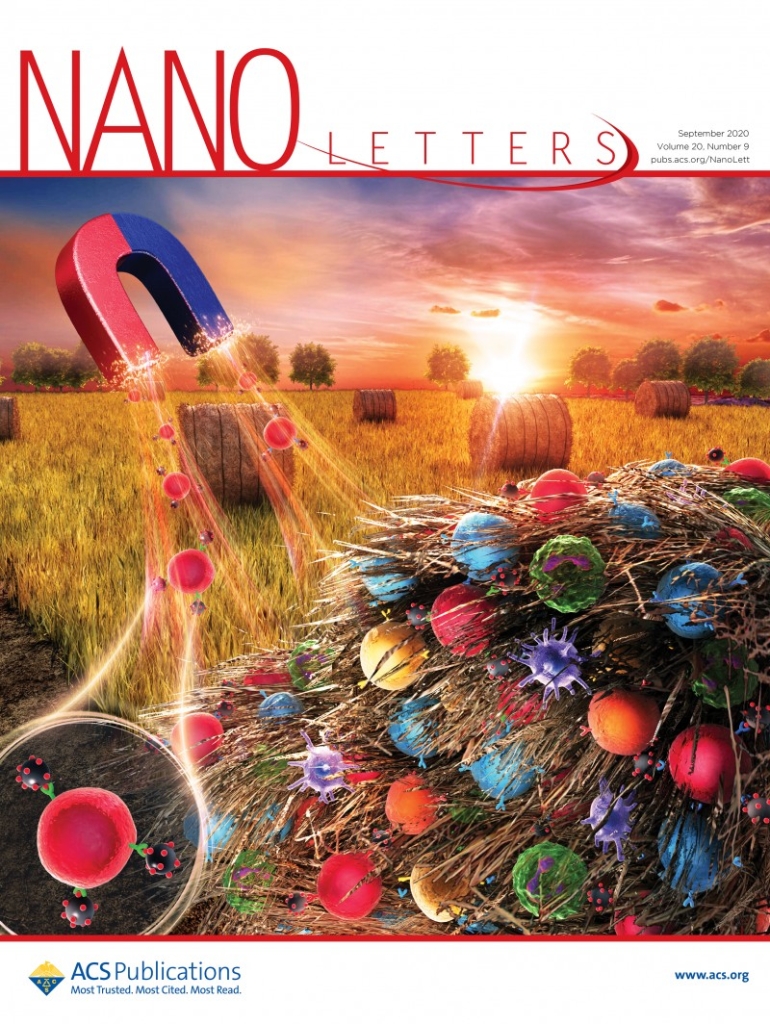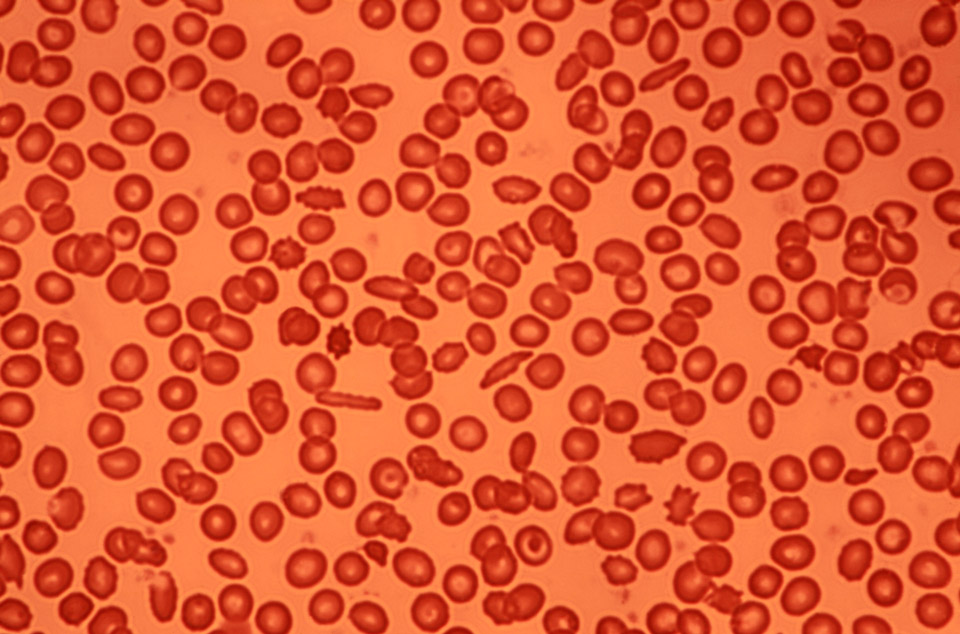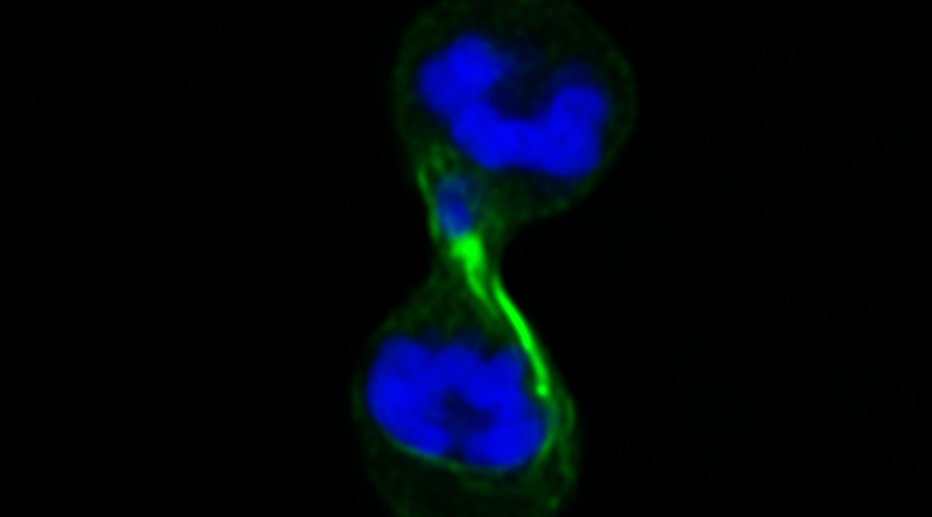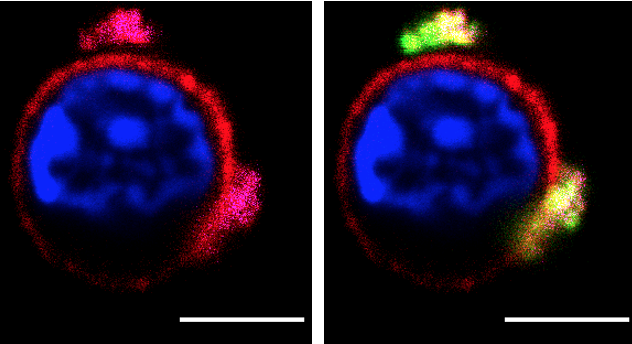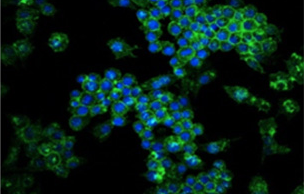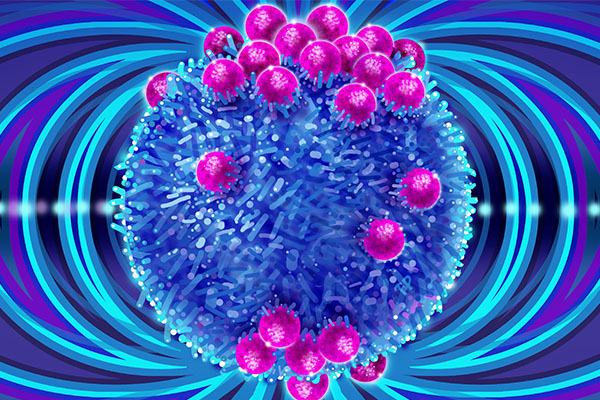News
Directing Vaccines to Dendritic Cells
Story by Kate Olsen and the National Institute of Biomedical Imaging and Bioengineering Targeted, biodegradable nanoparticles used in preclinical cancer treatment regimen Vaccines work by giving our immune system a ‘heads up’ about a known threat. They are traditionally given before we encounter a pathogen (such as the influenza virus), allowing our bodies to mount a better […]
New Color-Coded Test Quickly Reveals If Medical Nanoparticles Deliver Their Payload
Story by Johns Hopkins Medicine. Johns Hopkins Medicine researchers have developed a color-coded test that quickly signals whether newly developed nanoparticles — ultra small compartments designed to ferry medicines, vaccines and other therapies — deliver their cargo into target cells. Historically, nanoparticles have a very low delivery rate to the cytosol, the inside compartment of [...]
Jonathan Schneck Featured in IMAT Video
JH-TIE center director Jonathan Schneck discusses his group’s work on the development of a high-throughput system to analyze neoepitope-specific T-cell immune responses.
Researchers Develop New Platform for High Throughput Analysis of Antigen-specific T Cell Reponses
In a paper published in the September issue of Nano Letters, Hickey, et al. reported a series of technologies that streamline enrichment, expansion, and detection of a wide range of antigen-specific T cells for cancer, infectious disease, and autoimmunity. The authors developed a concept of “adaptive artificial antigen presenting cells,” which can target an array of T [...]
Researchers Create Nanoparticle With ‘Look and Feel’ of Red Blood Cells To Soak Up Toxins
Story by Johns Hopkins Medicine Red blood cells not only carry oxygen from one part of the body to another, they also act as sponges in the circulatory system, soaking up toxins such as poisons shed from infections. The more red blood cells available in the blood system, the faster the recovery from toxin-related threats [...]
Nanosize Device ‘Uncloaks’ Cancer Cells in Mice And Reveals Them to The Immune System
Story by Johns Hopkins Medicine Scientists at Johns Hopkins report they have designed and successfully tested an experimental, super small package able to deliver molecular signals that tag implanted human cancer cells in mice and make them visible for destruction by the animals' immune systems. The new method was developed, say the researchers, to deliver [...]
Nanoparticles Deliver ‘Suicide Gene’ Therapy to Pediatric Brain Tumors Growing in Mice
Story by Johns Hopkins Medicine Johns Hopkins researchers report that a type of biodegradable, lab-engineered nanoparticle they fashioned can successfully deliver a “suicide gene” to pediatric brain tumor cells implanted in the brains of mice. The poly(beta-amino ester) nanoparticles, known as PBAEs, were part of a treatment that also used a drug to kill the cells and [...]
Little Size Holds Big Impact: Johns Hopkins Scientists Develop Nanocontainer to Ship Titan-Size Gene Therapies and Drugs Into Cell
Story by Johns Hopkins Medicine. Scientists at Johns Hopkins Medicine report they have created a tiny, nanosize container that can slip inside cells and deliver protein-based medicines and gene therapies of any size — even hefty ones attached to the gene-editing tool called CRISPR. If their creation – constructed of a biodegradable polymer — passes [...]
Johns Hopkins Launches Hub for Immunology and Engineering Research
This press release is by Johns Hopkins Medicine and appeared in the Newsroom on November 13, 2019. If the saying that two heads are better than one is true, then joining two fields of science may be better than one to spur more advances in medicine. With a $6.7 million, five-year grant from the National Institutes of [...]



